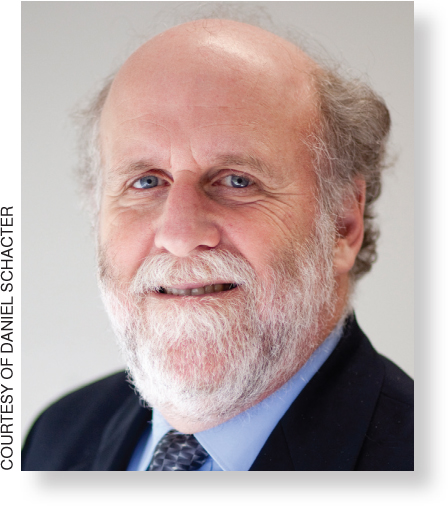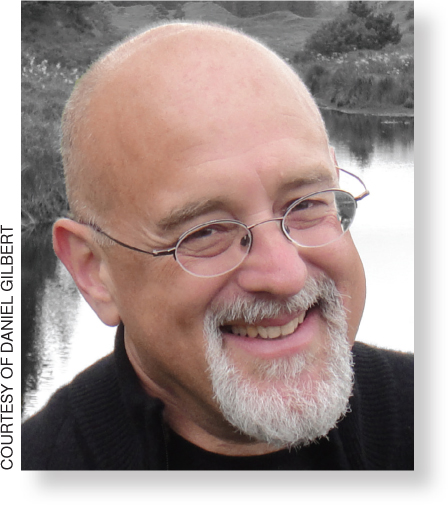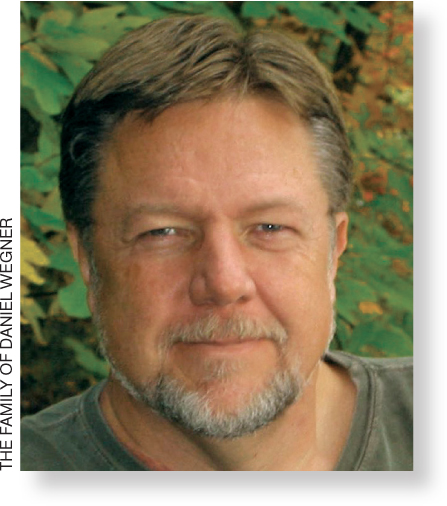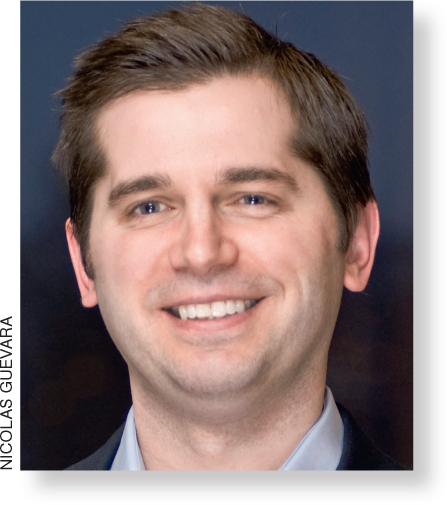About the Authors

Daniel Schacter is William R. Kenan, Jr., Professor of Psychology at Harvard University. Dan received his BA degree from the University of North Carolina at Chapel Hill. He subsequently developed a keen interest in amnesic disorders associated with various kinds of brain damage. He continued his research and education at the University of Toronto, where he received his PhD in 1981. He taught on the faculty at Toronto for the next six years before joining the psychology department at the University of Arizona in 1987. In 1991, he joined the faculty at Harvard University. His research explores the relationship between conscious and unconscious forms of memory, the nature of distortions and errors in remembering, and the ways in which we use memory to imagine future events. Many of Schacter’s studies are summarized in his 1996 book, Searching for Memory: The Brain, The Mind, and The Past, and his 2001 book, The Seven Sins of Memory: How the Mind Forgets and Remembers, both winners of the APA’s William James Book Award. Schacter has also received a number of awards for teaching and research, including the Harvard-

Daniel Gilbert is Edgar Pierce Professor of Psychology at Harvard University. Dan received his his BA from the University of Colorado at Denver and his PhD from Princeton University. From 1985 to 1996 he taught at the University of Texas, Austin, and in 1996 he joined the faculty of Harvard University. He has received the American Psychological Association’s Distinguished Scientific Award for an Early Career Contribution to Psychology, the Diener Award for Outstanding Contributions to Social Psychology, and has won teaching awards that include the Phi Beta Kappa Teaching Prize and the Harvard College Professorship. His research focuses on how and how well people think about their emotional reactions to future events. He is the author of the international best seller Stumbling on Happiness, which won the Royal Society’s General Prize for best popular science book of the year, and he is the co-

Daniel Wegner was the John Lindsley Professor of Psychology in Memory of William James at Harvard University. He received his BS in 1970 and PhD in 1974, both from Michigan State University. He began his teaching career at Trinity University in San Antonio, TX, before receiving his appointments at the University of Virginia in 1990 and then Harvard University in 2000. He was a Fellow of the American Academy of Arts and Sciences and also the recipient of the William James Award from the Association for Psychological Science, the Award for Distinguished Scientific Contributions from the American Psychological Association, and the Distinguished Scientist Award from the Society of Experimental Social Psychology. His research focused on thought suppression and mental control, transactive memory in relationships and groups, and the experience of conscious will. His work on thought suppression and consciousness served as the basis of two popular books, White Bears and Other Unwanted Thoughts and the Illusion of Conscious Will, both of which were named Choice Outstanding Academic Books. He died in 2013.

Matthew Nock is a Professor of Psychology at Harvard University. Matt received his BA from Boston University (1995) and his PhD from Yale University (2003), and he completed his clinical internship at Bellevue Hospital and the New York University Child Study Center (2003). Matt joined the faculty of Harvard University in 2003 and has been there ever since. While an undergraduate, Matt became very interested in the question of why people do things to intentionally harm themselves, and he has been conducting research aimed at answering this question ever since. His research is multidisciplinary in nature and uses a range of methodological approaches (e.g., epidemiologic surveys, laboratory-
vii